Sweet Rosie O'Grady
Brief Synopsis
Cast & Crew
Irving Cummings
Betty Grable
Robert Young
Adolphe Menjou
Reginald Gardiner
Virginia Grey
Film Details
Technical Specs

Synopsis
In the 1880s, American Madeleine Marlowe, called Madge by her friends, is the toast of the London musical comedy set and is engaged to Charles, the Duke of Trippingham. Although Madge wants to become a duchess immediately, Charles assures her that they will be married in a month, when he joins her in New York, where she is to star in a new show. After boarding a ship bound for the United States, Madge's manager, Arthur Skinner, and best friend, Edna Van Dyke, show her a copy of the notorious American tabloid The Police Gazette , which has been running a series on Madge. The current article reveals that her real name is Rosie O'Grady, and that she started out as a singer in Joe Flugelman's beer garden. The article's writer, Samuel A. Magee, then implies that Madge is only interested in the duke's title, and that the duke in turn is after Madge's money. Furious that her humble origins have been exposed, Madge vows to confront Sam in New York. When Madge's boat docks, a swarm of reporters awaits her. Sam "rescues" her from the competition and pumps her for information about her engagement, but when Madge learns his identity from another reporter, she tells the crowd waiting at her hotel that she and Sam are engaged, and that after their marriage, he will live off her income. Other newspapers print the story, and the Police Gazette 's cantakerous editor, Tom Morgan, fires Sam for making a laughingstock of their paper. Sam sends a message to Madge, begging for a truce, but when they meet for lunch, Madge again humiliates him by playing up their "romance" to Morgan and other waiting reporters. Fed up with being labeled a fortune hunter, Sam decides to turn the tables on Madge and publicly serenades her with a song he has written called "Sweet Rosie O'Grady." Sam then insists that he accompany her to Flugelman's, and although she is reluctant at first, Madge enjoys singing at her old stomping grounds. Sam and Madge, who have called off their feud, are drunk when they return to her hotel, and Charles, who has come to New York to surprise Madge, is furious to see them together. Madge becomes angry that Charles does not trust her, and after she breaks off the engagement, Charles and Sam commiserate in the hotel bar. Sam suggests that Charles pursue the wealthy Edna, and shortly after, Charles and Edna become engaged. Meanwhile, Skinner persuades Madge to take advantage of the publicity and stage a new show around Sam's "Sweet Rosie O'Grady" song. Sam attends the show's opening night, and is horrified by the lampooning of him during the second act. Madge, who now realizes that she loves Sam, is hurt when he disappears after the show, and enraged when it appears that he has stolen her love letters to the duke, which were returned by Charles after his engagement to Edna. When Madge goes to the Gazette 's office, however, she finds Sam beating up Morgan for stealing the letters. Pleased that Sam is defending her, Madge gets him to admit that he loves her, and after Morgan agrees to re-hire him, Madge accepts Sam's proposal of marriage.

Director
Irving Cummings
Cast
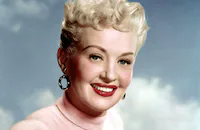
Betty Grable

Robert Young
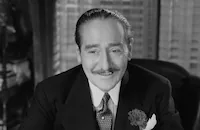
Adolphe Menjou

Reginald Gardiner

Virginia Grey
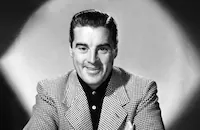
Phil Regan

Sig Ruman

Alan Dinehart
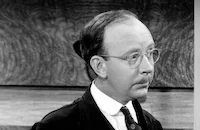
Hobart Cavanaugh
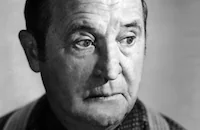
Frank Orth

Jonathan Hale
Hermes Pan
Stanley Clements

Byron Foulger
Lilyan Irene
Milton Parsons
Hal K. Dawson
George Chandler
Charles Trowbridge
St. Brendan's Boys Choir
Leo Diamond
Abe Diamond
Dick Hayman
Harry Roller
Pete Maggio
John Kelly
Billy Wayne

Douglas Scott
John Rogers
Louis Mason
Paul Burns
Eddy Waller
Ken Lundy
Robert Homans

Walter Baldwin
Al Hill
Walter Fenner
Gus Glassmire
Oliver Prickett
Herbert Vigran
Perc Launders
Cyril Ring
Milton Kibbee
Don Brodie
Sherry Hall
George Sherwood
Charles Jordan
Fred Walburn
Dorothy Granger
Charles Cockerill
Mary Gordon
Connie Leon
James Metcalfe
Bruce Warren
John Dilson
Edward Earle

Paul Maxey
Sam Wren
Hooper Atchley
William Joy
Charles Latorre
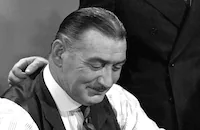
Edward Keane
Bert Hicks
Joe King

Charles Irwin
Alphonse Martell
Ronnie Page
Gerald Pierce
Gabriel Canzona
Lillian West
Herbert Ashley
Edward Clark
Beverly Masterman
Allan Cooke
John Deauville
Valerie Traxler
Grace Davies
Jean Lucius
Dona La Barr
Lee Morrison
Margaret Kays
Jerry Franks Jr.
Merrill Long
Bob Mascagno
Herb Lurie
Milton Chisholm
John Stanley
Clair Freeman
Bea Allen
Evelyne Eager
Beverly Weaver
Dolly Perrin
Dorothee Jarnac
Louise Allen
Jon Pierce
Mary Stewart
Jack Barnett
Fred Velasco
Riley Thompson
Emil Zarek
Crew
James Basevi
Ken Englund
Fanchon
Bernard Freericks
William Goetz
Mack Gordon
Charles Graham
Roger Heman
Charles Henderson
Renè Hubert
Frank E. Hughes
Natalie Kalmus
John W. Kelly
William Koenig
Fred Leigh
William R. Lipman
Thomas Little
Alfred Newman
Michael Nolan
Maude Nugent
Ernest Palmer
Hermes Pan
Guy Pearce
William Perlberg
Henry E. Pether
Ad Schaumer
Fred Sersen
Robert Simpson
A. Baldwin Sloane
Edgar Smith
Frederick Stephani
Edward Van Every
Harry Warren
Joseph C. Wright

Film Details
Technical Specs

Articles
Sweet Rosie O'Grady
This time around, Grable plays Madeleine Marlowe, a Brooklyn girl who becomes a star on the stage in London. When she returns home to the United States to boost her career, a police reporter, played by Robert Young, looks into her past in order to get a juicy story and discovers that she is really former Burlesque dancer Rosie O'Grady. A feud and inevitable romance ensues.
The books of Edward Van Every and his cowriter Dwight Taylor were announced by Fox as the basis of another Betty Grable film set in the 1880s, Coney Island (1943), but the truth was that the studio couldn't get a rights clearance from the family of Police Gazette editor Richard Fox, on whom the books were based. Fox, afraid that the other studios might acquire the rights first, put out fake press releases. Van Every and Taylor were actually working on Sweet Rosie O'Grady and the police reporter character played by Robert Young was somewhat fictionalized to avoid a lawsuit. The final script was credited to Ken Englund, based on a story by William R. Lipman, Frederick Stephani and Van Every. Former silent film actor Irving Cummings directed, having worked with Betty Grable before in Springtime in the Rockies (1942) and Down Argentine Way (1940).
The star of Sweet Rosie O'Grady was supposed to be Alice Faye, but the actress had just had a baby girl with her husband, band leader Phil Harris, and was expecting her second daughter, so Grable was given the part. Continuing the tradition of pin-up girls marrying band leaders (Lana Turner and Ava Gardner both married Artie Shaw), Grable would marry Harry James at 4:00 a.m. in a room at the Las Vegas Last Frontier Hotel on July 5, 1943. In the cast with Grable and Young were Reginald Gardiner, as Grable's English fiancé, Virginia Grey, Adolphe Menjou, and Sig Ruman. Hermes Pan choreographed the film and was the principal dancer in the Wishing Waltz number. Pan, most famous for choreographing the Fred Astaire-Ginger Rogers musicals in the 1930s, worked with Grable on seven films, including Springtime in the Rockies, Moon Over Miami (1941), and Coney Island.
The film, budgeted at an estimated $1,185,000, grossed three times that amount at the theaters, a testament to Grable's popularity, and was a thumbed-nose to critics like The New York Times critic "T.S." who called it, "Pretty as a bowl of wax fruit and just as dull [...] again offering Miss Betty Grable of the legs divine in an hour-and-a-half long display of assorted poses, suitable for pin-up. In luscious Technicolor that fairly exudes from every square inch of the screen, Miss Grable flounces about a good deal in some low-necked ensembles that resemble nothing so much as an Italian wedding cake. But the real tours de force come when blue-eyed, platinum-haired Miss Grable sings dreamily in a bathtub with soapsuds up to her glistening shoulders, or later when clad in pink tights she again proves that Twentieth Century-Fox has under contract the legs which long since have become immortal. For goo-goo-eyed masculine fanciers of this sort of thing and for those who sigh heavily over sheer prettiness, Sweet Rosie O'Grady will provide compensations."
Producer: William Perlberg
Director: Irving Cummings
Screenplay: Ken Englund (writer); William R. Lipman, Frederick Stephani, Edward Van Every (story)
Cinematography: Ernest Palmer
Art Direction: James Basevi, Joseph C. Wright
Music: Leigh Harline, Charles Henderson, Cyril J. Mockridge, Herbert W. Spencer (all uncredited)
Film Editing: Robert Simpson
Cast: Betty Grable (Madeleine 'Madge' Marlowe/Rosie O'Grady), Robert Young (Sam A. Magee), Adolphe Menjou (Tom Morgan), Reginald Gardiner (Charles, Duke of Trippingham), Virginia Grey (Edna Van Dyke), Phil Regan (Clark - Composer/Vocalist), Sig Ruman (Joe Flugelman), Alan Dinehart (Arthur Skinner), Hobart Cavanaugh (Clark), Frank Orth (Taxi Driver).
C-76m.
by Lorraine LoBianco
SOURCES:
The American Film Institute Catalog of Motion Pictures, Volume 1, Part 1
Hischak, Thomas S. The Oxford Companion to the American Musical: Theatre, Film, and Television
The Internet Movie Database
Kurtii, Jeff The Great Movie Musical Trivia Book
T.S. "Sweet Rosie O'Grady, in Which Antics of Betty Grable Are Featured in Technicolor, Makes Appearance at Roxy" The New York Times 21 Oct 43
Williams, Michael The Commonweal Vol. 39

Sweet Rosie O'Grady
Quotes
Trivia
Notes
The working titles of this film were Police Gazette Man and Police Gazette Girl. The Motion Picture Herald Prod Digest review lists The Girl on the Police Gazette as another working title, and a July 1942 Hollywood Reporter news item erroneously listed the film as Police Gazette Woman. The picture's written title cards, "Twentieth Century-Fox presents Betty Grable, Robert Young, Adolphe Menjou in Sweet Rosie O'Grady," are also sung by an offscreen chorus.
Information in the Twentieth Century-Fox Records of the Legal Department and Produced Scripts Collection, located at the UCLA Arts-Special Collections Library, indicate that when the studio purchased an unpublished story and two books by Edward Van Every in early 1941, it intended to produce a fictionalized account of the formation of the Police Gazette newspaper and of its most successful publisher, Richard Fox. The materials purchased from Van Every were: the unpublished story "The Police Gazette Man," Sins of New York as Exposed by the Polize Gazette (New York, 1930) and Sins of America as Exposed by the Police Gazette (New York, 1931). According to internal documents, however, the studio had difficulty obtaining clearances from Fox's children, and was reluctant to publicize its work on the project until the clearances had been obtained. In order to postpone any publicity about the Police Gazette project, Twentieth Century-Fox announced that Van Every was working on the screenplay for Coney Island, another Betty Grable film that was in pre-production. It is unlikely, however, that Van Every directly contributed to Coney Island, or that his literary materials were used for that film. The legal files also indicate that only Van Every's unpublished story, and not his published books, were used as a basis for Sweet Rosie O'Grady.
In June 1942, after it became clear that the studio would not be able to obtain the necessary clearances from Fox's heirs, producer William Perlberg suggested that the story be changed, with the framing device of the newspaper being kept, but the main plot being adapted from the 1937 Twentieth Century-Fox picture Love Is News, which was based on a story by William R. Lipman and Frederick Stephani (see AFI Catalog of Feature Films, 1931-40; F3.2604). [Love Is News, which was directed by Tay Garnett and starred Tyrone Power and Loretta Young, was remade in 1948 as That Wonderful Urge.]
According to the script files, Morrie Ryskind, Valentine Davies and Dwight Taylor worked on different drafts of the screenplay for Sweet Rosie O'Grady. The extent of their contributions to the completed picture has not been determined, however. Memos in the studio files indicate that there were disputes concerning which writers would receive onscreen credit, and that one of the writers wanted to use the pseudonym "Allan House." The matter was sent to the Screen Writers' Guild for arbitration, and the Guild decided that Ken Englund should be awarded sole credit for the screenplay.
According to a June 23, 1942 Los Angeles Examiner news item, Victor Mature was sought to play the role of "Richard Fox" before the story was changed, and a November 1942 Hollywood Reporter news item noted that the studio was in negotiations with George Raft to star in the picture. Although a March 1943 Hollywood Reporter news item includes Mildred Harris, Maurice Costello, Henry Otto and Philo McCullough in the cast, their appearance in the released film has not been confirmed. Another March 1943 Hollywood Reporter news item noted that "The Bagpipers of Buckingham" was one of the songs composed by Mack Gordon and Harry Warren for the picture, although it was not in the finished film. Production on the picture, for which Robert Young was borrowed from M-G-M, was temporarily halted when Betty Grable suffered a knee injury and had to undergo surgery.
The film became the object of two lawsuits, the first of which was filed by Van Every, who claimed that the studio owed him $5,700 from the purchase of his literary materials. Twentieth Century-Fox asserted that the monies were contingent upon Van Every's ability to obtain the clearances from Richard Fox's children, however, and that he was not entitled to further payment because the clearances were not provided. The owners of the Police Gazette joined Van Every's claim, stating that their waiver for the use of the newspaper's title was reliant on the film being based on Van Every's books or unpublished story. Because the picture was largely based on the earlier film Love Is News, the Police Gazette's owners believed that their name had been improperly used. The claim was settled out of court in May 1946 for $11,500.
In April 1944, songwriter Maude Nugent, the composer of "Sweet Rosie O'Grady," filed a lawsuit against Twentieth Century-Fox, claiming that the studio had unlawfully used her song. The studio countered that it had properly acquired the rights, and the case was dismissed in July 1946. Nugent's appeal of the case was dismissed in February 1948.
On March 13, 1947, The Hallmark Playhouse presented a radio broadcast of Sweet Rosie O'Grady.














